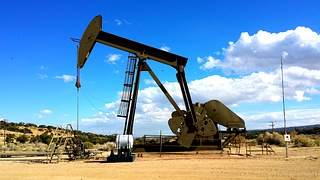The economist Nouriel Roubini, who has been called "Dr. Doom" in the past, warned against an upcoming recession next year, that could be caused by the increasing trade tensions between the United States and its trade partners and a spike in oil prices.
“It’s a scary time for the global economy,” said Roubini in an interview.
When shown how the market's trust in the response of the world central banks, Roubini added that they overestimate the policymakers capacity of responding to shocks since, despite the current situation, benchmark interest rates are still at historically minimum levels. The high levels of debts are also imposing restrictions, thus affecting the policymakers Room for maneuver.
Despite pushing for non-conventional monetary solutions, Roubini was highly critical towards cryptocurrencies.
“There’s massive, massive amounts of price manipulation,” he said about cryptocurrency trading, “it’s the most overhyped technology ever, it’s nothing better than a glorified spreadsheet...Nobody’s using it, and nobody’s ever going to use it,” he added.
 When asked about the global economic situation, particularly about the situation between the United States and China, Roubini mentioned that deglobalization is a relevant phenomenon right now and that the different countries would have to choose a side if the negotiations fail.
When asked about the global economic situation, particularly about the situation between the United States and China, Roubini mentioned that deglobalization is a relevant phenomenon right now and that the different countries would have to choose a side if the negotiations fail.
“This divorce is going to get ugly compared to the divorce between the U.S. and the Soviet Union,” he said about the relationship between the United States and China.
The oil market is also facing a problematic situation, as the tensions with Iran are escalating and causing an increase in oil prices, coinciding with a slowing global growth thus increasing the chance of a stagflationary crisis, like in the 70s.
Roubini has warned against a recession in the past, highlighting his pessimism regarding the world economies ability to avoid such a situation.
"Escalation of the tensions between the world’s two largest economies could well produce a global recession and subsequent financial crisis by 2020," he said in a recent article, "even if the US Federal Reserve and other major central banks pursue aggressive monetary easing," he added.
